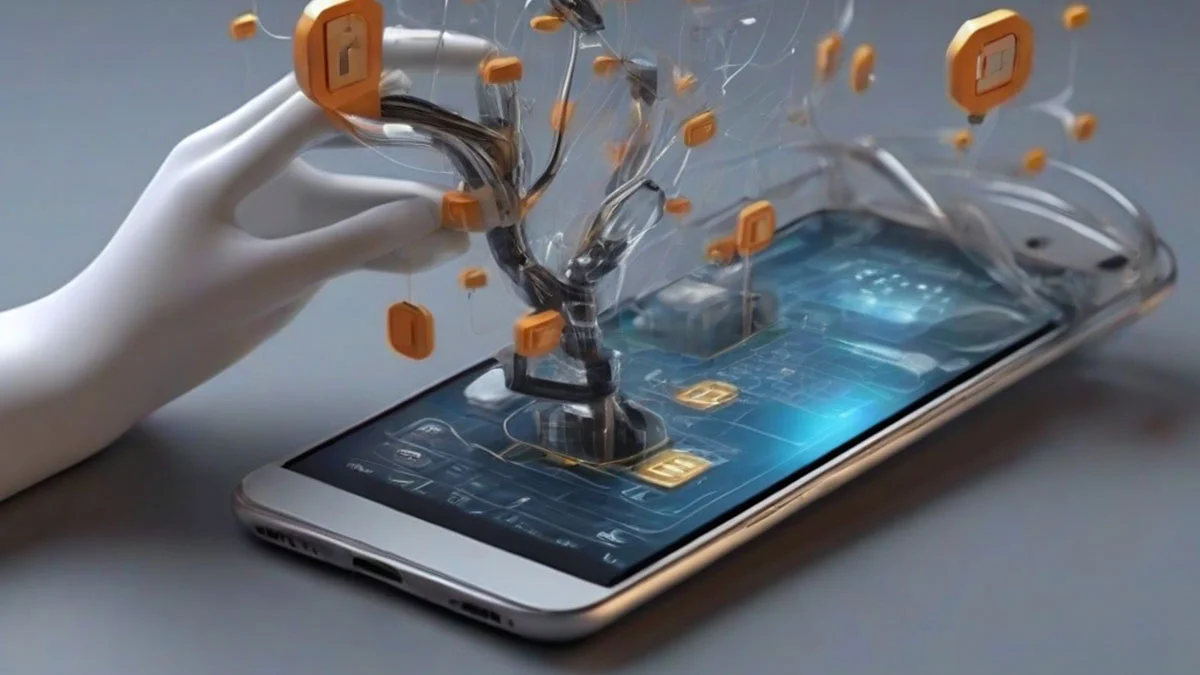Introduction to Upcoming Mobile Technology
Mobile technology has come a long way since the first cell phone was introduced decades ago. The evolution of mobile devices has been nothing short of remarkable, transforming the way we communicate, work, and entertain ourselves. In this article, we will dive deep into the exciting realm of upcoming mobile technology and explore the advancements that are set to revolutionize our mobile experience.
Understanding the Evolution of Mobile Technology
Over the years, mobile technology has witnessed significant advancements, from basic feature phones to sophisticated smartphones. These devices have become an indispensable part of our lives, allowing us to stay connected, access information, and perform various tasks on the go. The evolution of mobile technology has been marked by improvements in hardware, software, and connectivity, enabling us to do more with our devices than ever before.
Embracing Wireless Connectivity
One of the key developments in mobile technology is the advent of wireless connectivity. With the emergence of 4G networks, we witnessed faster internet speeds and improved connectivity, paving the way for streaming high-quality videos, online gaming, and seamless video calls. However, the next frontier in mobile technology lies in the widespread adoption of 5G networks. This new generation of wireless connectivity promises lightning-fast speeds, ultra-low latency, and the ability to connect multiple devices simultaneously. With 5G, we can expect to experience augmented reality, virtual reality, and an internet of things (IoT) revolution like never before.
Current Challenges and Opportunities
As mobile technology continues to evolve, it also brings forth a set of challenges and opportunities. The increasing complexity of mobile devices poses challenges in terms of battery life, processing power, and heat dissipation. However, these challenges also present opportunities for innovation and improvement. With each new iteration, mobile technology companies strive to address these challenges by developing more energy-efficient processors, optimizing software, and exploring new display technologies. These advancements not only enhance the user experience but also open up new possibilities for developers and entrepreneurs to create innovative applications and services.
Advancements in Mobile Hardware
Advancements in mobile hardware play a crucial role in shaping the future of mobile technology. Let’s take a closer look at some of the cutting-edge innovations that are set to redefine the mobile experience.
Cutting-Edge Processor Innovation
Mobile processors are the brains behind our smartphones, enabling us to run demanding apps, play graphic-intensive games, and multitask effortlessly. The future of mobile technology lies in AI-optimized chipsets that leverage artificial intelligence algorithms to deliver blazing-fast performance. These AI-powered processors can intelligently allocate resources, optimize power consumption, and enhance overall efficiency, resulting in a seamless and immersive user experience.
Furthermore, the upcoming mobile processors will boast enhanced computing power, allowing us to simultaneously perform resource-intensive tasks without any lag or slowdown. Multitasking will become smoother than ever before, enabling us to switch between apps, browse the web, and stream content without any compromises.
In addition to processing power, energy efficiency is also a significant focus in mobile processor development. Future mobile chipsets will incorporate energy-efficient architectures, allowing us to enjoy extended battery life without sacrificing performance. This means we can rely on our smartphones for longer periods without worrying about running out of power during the day.
Revolutionary Display Technologies
Advancements in display technologies have always been at the forefront of mobile innovation. The future of mobile technology will witness the rise of foldable and rollable displays, bringing us closer to achieving the ultimate full-screen experience. These flexible displays will enable us to unfold or unroll our smartphones, transforming them into tablets or even larger screens. Imagine having a smartphone that can seamlessly transition from a compact device to a tablet for immersive gaming, multitasking, or media consumption.
Another exciting development in mobile displays is the introduction of in-display cameras. These cameras are seamlessly integrated beneath the screen, eliminating the need for notches or punch-hole cutouts. As a result, we can enjoy a truly full-screen experience without any distractions. The future will also bring advancements in OLED and AMOLED panels, offering richer colors, deeper blacks, and improved contrast ratios, further enhancing our visual experience on mobile devices.
Redefining Mobile Photography
Mobile photography has become an integral part of our lives, allowing us to capture precious moments and express our creativity. The future of mobile technology will redefine mobile photography, taking it to new heights.
With advancements in image sensors and image processing algorithms, upcoming smartphones will feature pixel-perfect cameras with increased megapixel count. These cameras will capture stunning details, vibrant colors, and superior low-light performance, rivaling the quality of dedicated digital cameras.
Mobile photography will also progress towards computational photography, where software algorithms play a crucial role in enhancing image quality. From portrait mode to night mode, these algorithms will make use of multiple exposures, machine learning, and AI to deliver professional-grade photos effortlessly.
Additionally, the integration of periscope zoom lenses will bring enhanced zoom capabilities to mobile devices. We will be able to capture detailed shots from a distance without compromising image quality.
Groundbreaking Software Innovations
While hardware advancements are crucial, the software plays an equally important role in shaping the future of mobile technology. Let’s explore some of the groundbreaking software innovations that are set to transform our mobile experience.
Operating System Advancements
Operating systems serve as the backbone of our mobile devices, providing a seamless user experience and enabling us to access a multitude of apps and services. The future of mobile technology lies in the evolution of seamless ecosystems that integrate our mobile devices with other smart devices.
Seamless ecosystems will enable us to control and interact with our smartphones, tablets, smartwatches, and other smart devices from a single interface. This integration will enhance our productivity, simplify device management, and facilitate seamless data transfer between devices.
Furthermore, augmented reality (AR) is on its way to becoming mainstream, thanks to advancements in mobile operating systems. AR overlays interactive digital content onto the real world, opening up endless possibilities in gaming, education, and even home improvement.
Mobile operating systems of the future will also prioritize enhanced privacy and security measures. With an increasing amount of personal and sensitive data stored on our devices, it is crucial to ensure that our information remains safe and secure. Advanced encryption, biometric authentication, and granular app permissions will be key features in upcoming mobile operating systems.
Artificial Intelligence (AI) Integration
Artificial intelligence (AI) is poised to revolutionize the mobile user experience. From intelligent voice assistants to personalized recommendations, AI integration will redefine the way we interact with our devices.
Mobile devices of the future will feature intelligent voice assistants that can understand natural language and carry out tasks based on our voice commands. Natural language processing advancements will allow us to communicate with our smartphones in a more conversational and intuitive manner.
Moreover, machine learning algorithms will analyze our usage patterns, preferences, and behavior to provide personalized recommendations. Whether it’s suggesting apps, articles, or even predicting our next move, AI-powered mobile devices will cater to our individual needs and preferences.
Connectivity and IoT Expansion
The advent of 5G technology will bring about a paradigm shift in mobile connectivity. 5G networks will offer ultra-fast speeds, minimal latency, and the ability to connect an unprecedented number of devices simultaneously. This will pave the way for a new era of connected living, where our smartphones seamlessly integrate with our smart home devices, wearables, and even our vehicles.
With 5G, we can expect to control and monitor various aspects of our homes remotely. From adjusting the thermostat to managing security systems, our smartphones will become the central control hub for all our smart devices.
Furthermore, the expansion of IoT ecosystems will enable us to connect and interact with a wide range of devices, from kitchen appliances to healthcare devices. Imagine receiving notifications on our smartphones when the milk in our refrigerator is running low or automatically tracking our fitness data on our smartphones as we work out.
Emerging Trends in Mobile Applications
As mobile technology evolves, so do the applications and services available to us. Let’s take a look at some of the upcoming trends that will shape the future of mobile applications.
Rise of Virtual Reality (VR) and Augmented Reality (AR) Applications
Virtual reality (VR) and augmented reality (AR) are poised to transform various industries, including gaming, education, and e-commerce.
Immersive gaming experiences will become more accessible to mobile users, thanks to advancements in VR and AR technologies. From stepping into virtual worlds to battling virtual enemies in our living rooms, mobile gaming will enter a whole new dimension.
AR applications will find their way into education and training as well. Imagine students being able to visualize complex scientific concepts in 3D or professionals receiving on-the-job training through AR overlays. These technologies will revolutionize the way we learn and acquire new skills.
E-commerce will also undergo a transformation with the introduction of interactive shopping platforms. AR will allow us to virtually try on clothes or visualize furniture in our homes before making a purchase. This immersive shopping experience will bridge the gap between online and offline retail, providing a more engaging and personalized shopping experience.
Mobile Health and Wellness Revolution
Mobile devices have already made a significant impact on our health and wellness, and the future holds even more promises.
Upcoming mobile devices will incorporate innovative health monitoring features and seamless integration with wearables. From tracking heart rate and sleep patterns to monitoring blood glucose levels, our smartphones will become powerful health companions, encouraging us to lead healthier lives.
Telemedicine and collaborative healthcare applications will also become more prevalent, enabling us to receive medical consultation, diagnosis, and treatment remotely. With just a few taps on our smartphones, we can connect with healthcare professionals, access medical records, and receive personalized recommendations for maintaining our well-being.
Fitness tracking will continue to evolve, providing us with personalized workout plans, real-time feedback, and motivation to achieve our fitness goals. Our smartphones will serve as personal trainers, helping us stay accountable and make progress towards a healthier lifestyle.
Blockchain and Mobile Payments
Blockchain technology has the potential to revolutionize mobile payments, making them more secure, efficient, and accessible.
Secure mobile transactions will be facilitated by blockchain, providing trusted and tamper-proof records of every payment. This will eliminate the need for intermediaries, reduce transaction fees, and streamline the payment process, especially for cross-border transactions.
Decentralized finance (DeFi) and cryptocurrency integration will also make their way into the mobile payments landscape. Mobile wallets will allow us to securely store and transact with digital currencies, opening up new possibilities for borderless and permissionless transactions.
In addition to traditional payments, blockchain technology will enable us to participate in decentralized applications and smart contracts directly from our smartphones. This will empower individuals, foster financial inclusivity, and reshape the way we interact with financial services.
Summary: Embracing the Future of Mobile Technology
In conclusion, the future of mobile technology is brimming with exciting advancements and innovations. From cutting-edge hardware to groundbreaking software, the upcoming mobile technology landscape promises a truly immersive and seamless experience.
We have explored the advancements in mobile hardware, such as AI-optimized processors, revolutionary display technologies, and redefined mobile photography. The software innovations include seamless ecosystems, AI integration, and the expansion of connectivity and IoT. Furthermore, emerging trends in mobile applications, such as VR and AR, mobile health and wellness, and blockchain-based mobile payments, will shape the way we live, work, and connect with the world.
It is vital to stay updated with the latest developments in mobile technology and embrace the change. As the future unfolds, so do the opportunities for us to leverage mobile technology for personal growth, productivity, and entertainment. So, let’s embrace the future with open arms and unlock the vast potential that lies within the world of mobile technology.
FAQs on Best Upcoming Mobile Technology
What is the significance of foldable displays in mobile technology?
Foldable displays in mobile technology have the potential to revolutionize the way we interact with our smartphones. These flexible displays allow us to transform our devices from a compact form factor to a larger tablet-like screen, providing a more immersive experience for gaming, multitasking, and media consumption. Foldable displays also offer the convenience of portability while maximizing screen real estate, opening up endless possibilities for creativity and productivity.
How will 5G revolutionize the mobile experience?
5G technology is set to revolutionize the mobile experience in multiple ways. With ultra-fast speeds, minimal latency, and support for a massive number of connected devices, 5G networks will unlock new opportunities for immersive gaming, seamless video streaming, and real-time communication. 5G will also enable the widespread adoption of augmented reality (AR) and virtual reality (VR) applications, transforming industries like education, healthcare, and e-commerce. Additionally, 5G will facilitate the seamless integration of our smartphones with other smart devices, creating a holistic and interconnected ecosystem for a truly connected living experience.
How can AI improve mobile user experience and productivity?
AI integration can revolutionize mobile user experience and enhance productivity in various ways. Intelligent voice assistants powered by AI algorithms can understand natural language and carry out tasks based on our voice commands, making interaction with mobile devices more intuitive and convenient. Machine learning algorithms analyze our usage patterns, preferences, and behavior to provide personalized recommendations, improving the overall user experience. AI can also automate repetitive tasks, provide real-time language translation, and enable advanced features such as facial recognition and smart photo editing, making our smartphones more versatile and efficient tools.
What are the potential applications of AR and VR in various industries?
AR and VR have the potential to transform industries such as gaming, education, and e-commerce. In the gaming industry, AR and VR can provide immersive and interactive experiences, allowing gamers to step into virtual worlds and engage in realistic gameplay. In education, AR and VR can enhance learning by visualizing complex concepts, creating interactive simulations, and offering virtual field trips. In e-commerce, AR can enable customers to try on clothes virtually, visualize furniture in their homes, and have a more engaging shopping experience. Beyond these industries, AR and VR have applications in healthcare, architecture, training, and entertainment, transforming the way we interact with various sectors.
Are mobile payments safe and secure with blockchain technology?
Blockchain technology provides enhanced security and transparency for mobile payments. By utilizing decentralized networks and encryption protocols, blockchain ensures that every transaction is recorded in a tamper-proof and immutable manner. This significantly reduces the risk of fraud, counterfeiting, and unauthorized access to personal information. Blockchain-based mobile payments also eliminate the need for intermediaries, reducing transaction fees and enabling faster and more efficient cross-border transactions. However, it is essential to choose reputable platforms and use proper security measures, such as strong passwords and two-factor authentication, to ensure the safety and security of mobile payments.

































Add comment